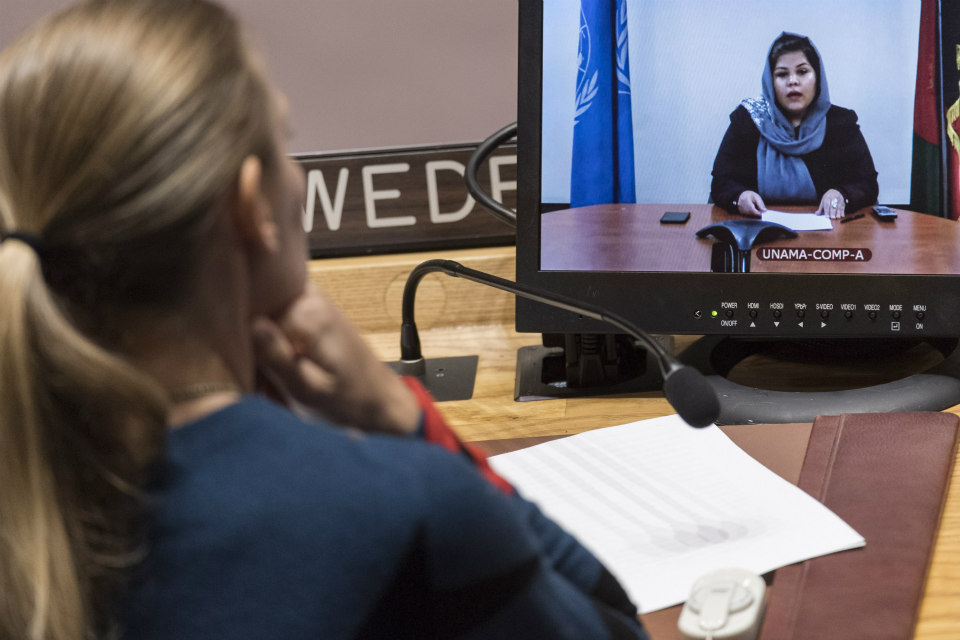"Instability in Afghanistan inflicts tremendous suffering on the Afghan people. The international community can help to change this"
Statement by Ambassador Jonathan Allen, UK Deputy Permanent Representative to the UN, on Afghanistan.

Thank you Mr President.
And I would also like to thank the Secretary-General and Special Representative Yamamoto for the latest report on the situation in Afghanistan. And of course to all our briefers.
As the Secretary-General’s latest report acknowledges, Afghanistan continues to face many challenges to its peace and stability.
However it is important to recognise the significant progress that has been made. 6.4 million children now attend school, the country has a democratic government, and Afghan Security forces are fighting to protect their fellow citizens.
We remain committed to supporting the Afghanistan people on their path towards peace and prosperity bilaterally and through the United Nations. The UK is spending up to $1 billion by 2020 to support the Afghan Government’s work to improve security, quality of life, and access to education.
Mr President, I will take this opportunity to focus on three important elements of peace building in Afghanistan: the holding of timely elections, the Afghan led peace process, and the protection of human rights.
Firstly credible, inclusive and timely elections are essential for long-term stability. We remain committed, with the international community, to supporting the Afghan government’s delivery of parliamentary and district elections in 2018. We call upon the government and the electoral management bodies to deliver the elections the Afghan people deserve.
Mr President there is no purely military solution to the conflict in Afghanistan. The only viable option for achieving lasting peace and stability is an Afghan-led and Afghan-owned peace process. The Taleban must choose to engage with this.
We welcome the actions taken by the United Nations, including by the Secretary General and Special Representative, to act on the recommendations in the strategic review of the UN Mission in Afghanistan. This recognised the importance of placing peace efforts at the forefront of the UN’s work.
The Kabul Process for Peace and Security Cooperation will convene its second meeting in early February, and we call on all parties to engage constructively with the Afghan Government through this process to give Afghanistan the best hope of achieving peace.
It is also encouraging that human rights remain an essential part of UNAMA’s mandate and I thank SRSG Yamamoto for highlighting the UN’s work to support the meaningful participation of women in the upcoming elections.
In that regard, I would like to thank Ms Wazhma Frogh for her compelling briefing, and pay tribute to her many years of tireless activism in support of women’s rights in Afghanistan. Her invitation to brief the Security Council today demonstrates the importance we place on these issues.
The UK is supporting Afghanistan to prevent violence against women and girls, improve girls’ education and ensure women’s full participation in political and economic life. We are also mentoring the trainers of future female leaders at the Afghanistan National Army Officer Academy.
The Council’s adoption of Resolution 2344 ensures Women Peace and Security considerations remain at the heart of the UN’s work in Afghanistan. And we welcome the Afghan Government’s work so far on its National Action Plan on Women Peace and Security and urge them to ensure its full implementation.
With Afghanistan’s recent election to the Human Rights Council, on which we congratulate them again, we look forward to working with them to promote and protect human rights around the world, including through the fulfilment of their own international human rights commitments.
Looking ahead to next month, we fully support Kazakhstan’s decision to prioritise Afghanistan and central Asia during its Presidency of the Council. We look forward to working with Kazakhstan, Council Members and regional and international partners, to support the efforts of President Ghani and his government to build peace and security with a particular focus on regional connectivity and sustaining peace.
Instability in Afghanistan inflicts tremendous suffering on the Afghan people. The international community can help to change this. If we work together, the people and Government of Afghanistan can build the harmony and prosperity which have been inaccessible for so many decades.
Thank you Mr President.